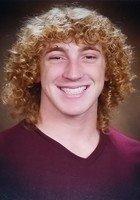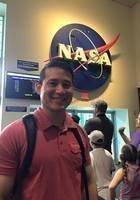Connect with hundreds of tutors like Julian
Who needs tutoring?
FEATURED BY
TUTORS FROM
- YaleUniversity
- PrincetonUniversity
- StanfordUniversity
- CornellUniversity

Julian
About Me
In 2015, I graduated with my BS in Biochemistry from the University of California, Riverside. After college, I have been working as a researcher at the UCLA Center for Inflammatory Bowel Disease where I can integrate my passion for both the bench and the bedside. Aside from my academic endeavors, I find myself passing time on the weekdays by cooking, gardening or gaming. On the weekends, you can find me surfing or snowboarding. My love for tutoring began when I was a junior in high school, and I have been actively involved in peer tutoring ever since. From algebra to biology and speech, I tutored my peers to success. In college, I once again found myself attracted to tutoring by helping students master the concepts behind biology, organic chemistry, and biochemistry. For four summers, I have worked as a camp counselor at the Painted Turtle supervising children, teens, and young adults. These summers at camp have refined my abilities to be an effective leader, listener, and communicator. I easily build strong, personal relationships which allow my students, and campers alike, to feel comfortable with learning. I engage my students and peers with infectious enthusiasm and love for learning; no matter how abstract or foreign the subject is, I can use my interdisciplinary knowledge to excite and enthrall students of all ages and abilities. I find that my most attractive quality is how I can easily incorporate personal connections to the student's interests. I feel that I can truly personalize the learning experience to make the content feel both real and relevant. I constantly adapt my methods to match the needs of the student, and their feedback about my lessons, methods, and approaches is paramount to me. I believe it is important to not only build upon what they have learned in class, but to establish a firm foundation of study and homework habits that they will carry with them beyond our sessions and into their classes.
Education & Certifications
Q&A with Julian
Connect with a tutor like Julian
Connect with a tutor like Julian
Tutors with Similar Experience

Joseph
10+ YearsMoravian College and Moravian Theological Seminary
Bachelors, Political Science/Math
View Profile
